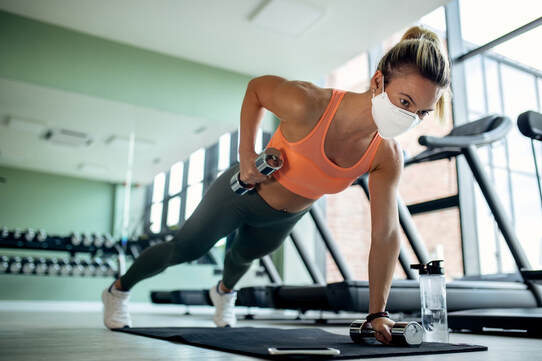|
COVID-19 is becoming increasingly prevalent both within our local community and the broader population and it is more than likely at this stage that either you or someone you know has contracted the virus. Find out everything you need to know about returning to exercise after a bout of COVID-19. So... How can COVID-19 affect my ability to exercise? Everyone has different experiences after contracting COVID-19 and this can all be related to your age, gender, overall health and symptom severity. You may initially experience symptoms such as a persistent cough, shortness of breath, fatigue, headaches, body aches, nausea or a sore throat, all of which will impact your ability to exercise. Furthermore if you experience “long-COVID” where symptoms persist for several weeks after having the virus, you may present with inflamed lungs causing significant shortness of breath or high levels of fatigue. These will both limit your physical function and capacity to complete moderate to vigorous intensity exercise. Should I exercise if I have COVID-19? The short answer is no. Research completed by the World Health Organisation tells us that up to 40% of people who contract COVID-19 will be asymptomatic and generally feel fine. If this is the case the recommendation is to complete light movement such as gentle walking or stretching but to avoid moderate to vigorous exercise. For those who do display symptoms of COVID-19 and feel unwell it is advised to rest, increase fluids and complete very gentle movement as even a short walk down the hallway can aggravate shortness of breath in some people. How long should I wait before returning to exercise? There is no one size fits all in regards to this question as recovery from COVID-19 will look different for everyone. Initially being cautious not to spread the virus to others when in the acute stage and presenting with symptoms. This means staying away from gyms, group exercise classes or team sports. Start small and gradually build up, try to think of any daily movement as a form of exercise and increase from there. For example doing a few walks up and down the hallway and stopping once you begin to feel uncomfortable. Exercise has been shown to increase stimulation of the immune system, assisting you to recover from COVID-19. Although be-mindful that mild symptoms can persist up to 6 weeks so it is important to listen to your body and rest when needed, when returning to exercise. How will I know if I am doing too much? It is important to listen to your body and be aware of what are “normal” signs and symptoms when exercising and what are not. For example it is “normal” to have some degree of shortness of breath and fatigue when exercising. It is NOT normal to have these symptoms when doing gentle, everyday activities that you could previously do with ease. The amount of time you had off from your regular exercise routine is also important to consider. After any period off from our regular exercise routine we need to regress exercises to adjust for our decreased strength and cardiovascular endurance. This may involve reducing the time or distance that you are completing during your cardio or the weight, repetitions or number of sets during strength based exercises. Lastly monitoring your symptoms after exercise and the next day will guide you in knowing if you are doing too much and need to slow down a little bit or if your body is responding well to your volume of exercise. If you are recovering from COVID-19 and not sure where to start when getting back into exercise, one of our Exercise Physiologists can assist you in this process, in a safe and individualised manner. Written by,
Aleisha Michael Accredited Exercise Physiologist
0 Comments
|
AuthorSLisa Parkinson Archives
July 2024
Categories
All
|



 RSS Feed
RSS Feed